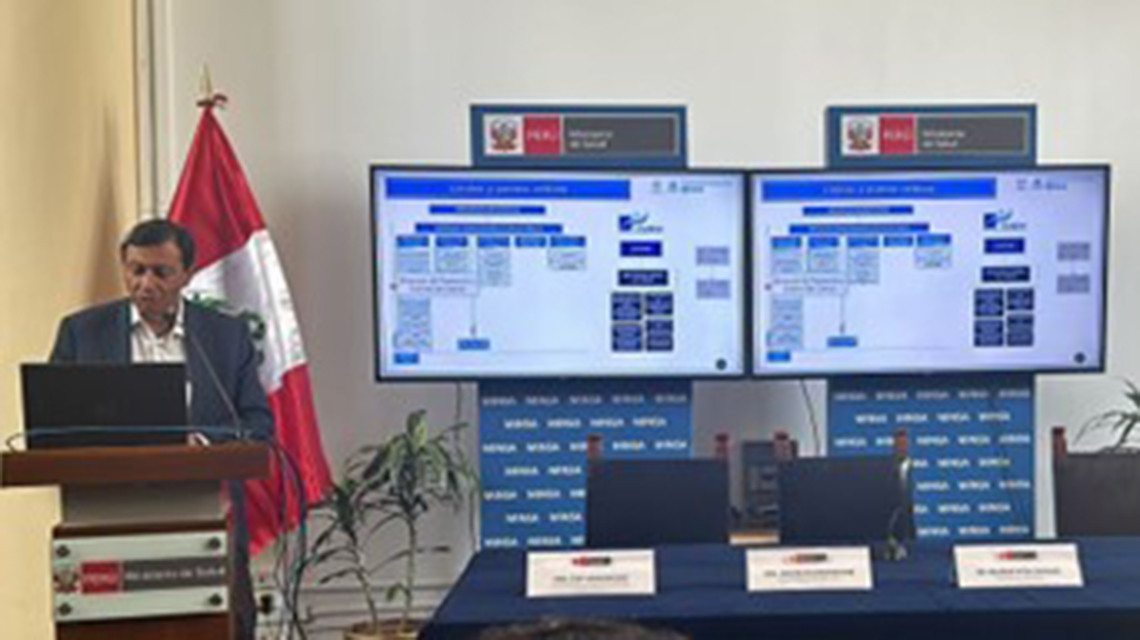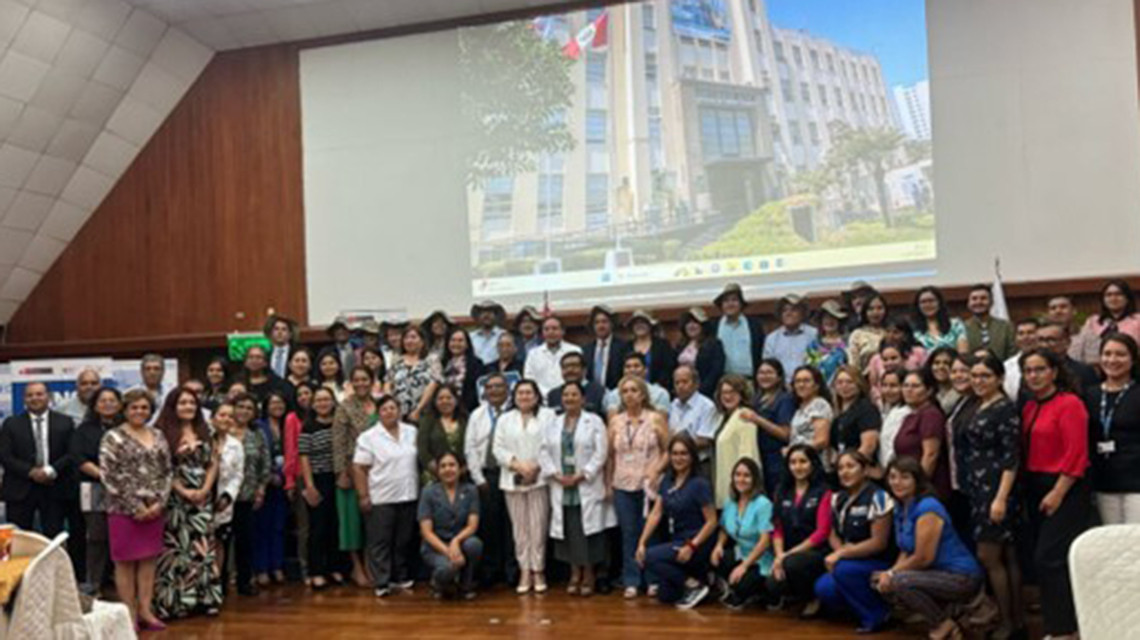Peru is advancing towards its goal of delivering universal health care to all cancer patients; decentralization of nuclear medicine and radiotherapy cancer services outside of the capital city is now well underway; and its second National Cancer Control Plan is nearing completion, a team of national and international cancer experts from the IAEA, the World Health Organization (WHO) and the International Agency for Research on Cancer (IARC) has found.
The team were on the ground in Peru in April to conduct a thorough review of cancer control capacity and needs as part of an imPACT Review mission.
During the mission, experts noted that further reinforcements, particularly in the areas of nuclear medicine and radiotherapy, would bring further improvements, but said resources were limited. Subsequently, IAEA Director General Rafael Mariano Grossi paid an official visit to Peru in June 2. He visited the National Cancer Institute (Instituto Nacional de Enfermedades Neoplásicas - INEN) and confirmed the IAEA's commitment to supporting Peru in its efforts to control cancer under the IAEA's flagship Rays of Hope initiative, aimed at widening access to cancer care where the need is greatest.
"Through Rays of Hope, the IAEA will support Peru's efforts to enhance cancer treatment capabilities by providing additional equipment to strengthen radiotherapy services," he announced during the visit.
Support is needed in a country which the IARC's Global Cancer Observatory (Globocan) estimates to have the fourth largest incidence of cancer in the region. In 2022, the number of recorded new cancer cases were estimated to be just above 70 000, primarily affecting the prostate, stomach and colorectum. With these numbers expected to rise by more than 30 per cent by 2035, the Ministry of Health requested a second imPACT Review to support its cancer control efforts, a decade after the first.
"It was an honour to note the progress taken by the Peruvian health authorities since our organizations last conducted an imPACT Review in the country," said Lisa Stevens, Director of the IAEA's Programme of Action for Cancer Therapy (PACT), while in Lima with the imPACT review team. "Positive steps were observed at all levels of the cancer control continuum, including for planning, screening, training, registration and management," she added.

The Peruvian Vice-Minister of Health welcomed the imPACT Review team to a workshop at the end of the mission to review key findings
A key objective of the review was to evaluate the progress made in cancer prevention and control since 2014 and identify the gaps that persist in delivering equitable and timely access to quality services for cancer diagnosis and treatment. "We will use the evidence collected as part of the imPACT Review to inform the new integrated plan for cancer prevention and control and build a strategy for mobilizing funds and strategic partners," said Eric Ricardo Peña Sánchez, Peru's Vice Minister of Public Health. As the government prepares its third multisectoral National Cancer Control Plan, its commitment to addressing the nation's growing cancer burden is evident, particularly in three large areas located in the north, coastal south and central highlands of the country, known as macro-regions.
Steps have already been taken to decentralize cancer management services in Peru, notably in these three macro-regions, enabling patients outside of the capital city to access services. "The investments needed to achieve the objectives we have set ourselves are substantial," explained Essy Milagros Maradiegue Chirinos, Executive Director of the Cancer Prevention and Control Directorate of the Ministry of Health (MINSA). "We will collaborate with donors and partners active in the sector to identify priorities and organize funds in an effective and rational manner," she added.
Several organizations are supporting Peru in its efforts to advance cancer care, notably MD Anderson Cancer Center, which participated in the mission with experts in cancer prevention, pathology, surgery and City Cancer Challenge (C/Can) which is supporting MINSA with resource mobilization and capacity building in the city of Arequipa.

The full imPACT Review team consisted of 38 national experts and 13 experts appointed by IAEA, PAHO/WHO and IARC.
According to Pan American Health Organization (PAHO/WHO) representative Maureen Birmingham, the mission arrived at the most opportune moment for the country, considering that the current cancer control plan is nearing its completion. "There is a need for information and evidence to analyse the gaps that remain to ensure timely and quality access for the entire Peruvian population, achieving the principle of universal health access," she said.
The imPACT Review team commended important improvements in cancer care over the past decade, including expansion of the regulatory and planning framework to cover cancer care, and an extension of free HPV vaccination coverage for all girls up to 18 years of age.
Furthermore, the government has taken steps to strengthen information management in the country by establishing three population-based cancer registries, consolidating the National Cancer Registry with standardized hospital-based and population-based data and records, and ensuring specific budget allocations for surveillance, registry and research. The imPACT Review team's recommendations were geared towards standardizing academic curricula as well as protocols and guidelines around screening, diagnosis, and treatment, to ensure the highest quality of service for patients.
At the end of the mission, a participatory planning workshop was organised with more than 80 stakeholders from across the cancer control spectrum to validate findings and clarify the short-, medium- and long-term recommendations developed by the team of experts for improving cancer care and diagnosis in the country. Key findings from this workshop were subsequently presented to the Ministry of Health leadership and are expected to feed into the third National Cancer Control Plan currently under development in the country.






